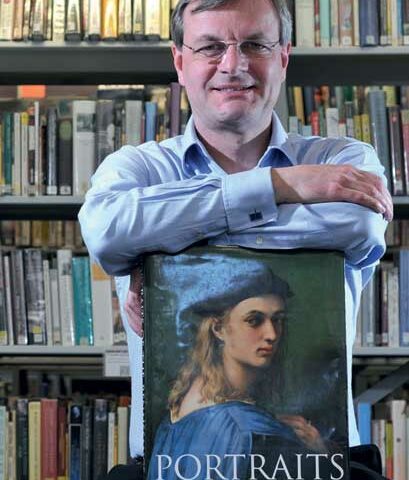


Delicious, guilt-free recipes with Slimming World magazine
21st February 2024The Pursuit of speed, with GP Racing Magazine
28th February 2024Over the years we have seen how library managers have had to be more creative with their budgets, and try to stretch their funds as far as they will go. Andrew fletcher, area manager for newcastle upon tyne libraries in the west of the city explains how magazines are playing an important role in making libraries relevant in times of change.
The difficulties faced by libraries during this time of austerity are well documented, and nowhere has this been more apparent than in Newcastle-Upon Tyne. But library manager Andrew Fletcher believes magazines are helping to engage with a whole new audience.
With responsibility for nine libraries in the west of Newcastle as well as oversight of the Stock Services department, he is charged with ensuring the library service serves the community on its doorstep.
“Our stock really needs to reflect the changing demands of the community, and it’s important that we move with the times”
“We measure our success by the number of people visiting and using the library on a daily or weekly basis but also as a tool for learning. To achieve that people need to feel there’s something of interest to them at their local branch.”
For Andrew this means providing a balanced stock at every library including a supply of current magazine titles. He continues:
“We’ve promoted magazines by locating them close to comfy seating areas, typically near to the café or coffee machines. I suppose you could describe them as ‘break-out areas’ where people can relax and enjoy reading material that is easy to dip in and out of. The last few years have seen a change in the perception of magazines as a way to promote greater literacy and develop positive reading habits, and by stocking a range of interest-led titles – from lifestyle to gardening, and motoring to cookery – we are able to attract those who wouldn’t have considered themselves ‘library-goers’ before.”
Andrew identifies popular culture magazines as playing a key role in dispelling the myth that libraries are formal facilities, and he is keen to stress the positive impact they have had with children in particular. Andrew continues:
“As a way of enticing young readers into the library and encouraging them to read more widely, magazines are a fantastic resource. We are finding that the right magazines give young readers a taste for a subject, encouraging them to then go and explore their library further. For example, we might see readers of National Geographic Kids or BBC Wildlife becoming immersed in a particular topic and, before you know it, they are scouring the library for non-fiction titles, or using a computer to develop this knowledge further. By selecting a broad range of titles based on informal feedback from visitors, we can use magazines to provide a pathway to all kinds of subjects.”
The need to keep the libraries of Newcastle current and appealing to both adults and children presents a particular challenge for Andrew and his team. With over 100 magazines and journals stocked in the Central Library alone each month, it is both a logistical and financial challenge for an institution facing budgetary restrictions in times of austerity. Library subscriptions had previously been handled through a number of different suppliers in Newcastle, but after some of the branch libraries switched to a single subscription service managed by Unique Magazines, Andrew says it wasn’t long before he was convinced of the benefits they could offer.
To those unsure what kind of impact magazines can have in developing the next generation of educated and literate readers, Andrew points to a library visit of best-selling children’s author Tom Palmer. Andrew comments:
“We had Tom in to give a talk on his latest book and run a workshop with some local school children at one of the libraries. It was interesting to hear how he’d actually come to books quite late in life. Apparently he’d spent most of his childhood reading magazines, and without the enjoyment of his favourite weekly and monthly titles, he might never have turned his hand to writing himself. Even now, he says he still likes to use magazines in his workshops because of the speed with which they can engage young readers. And I suppose therein lies the powers of magazines to young readers, they are a pathway to books that the Internet or smartphones might never fully replicate.”




